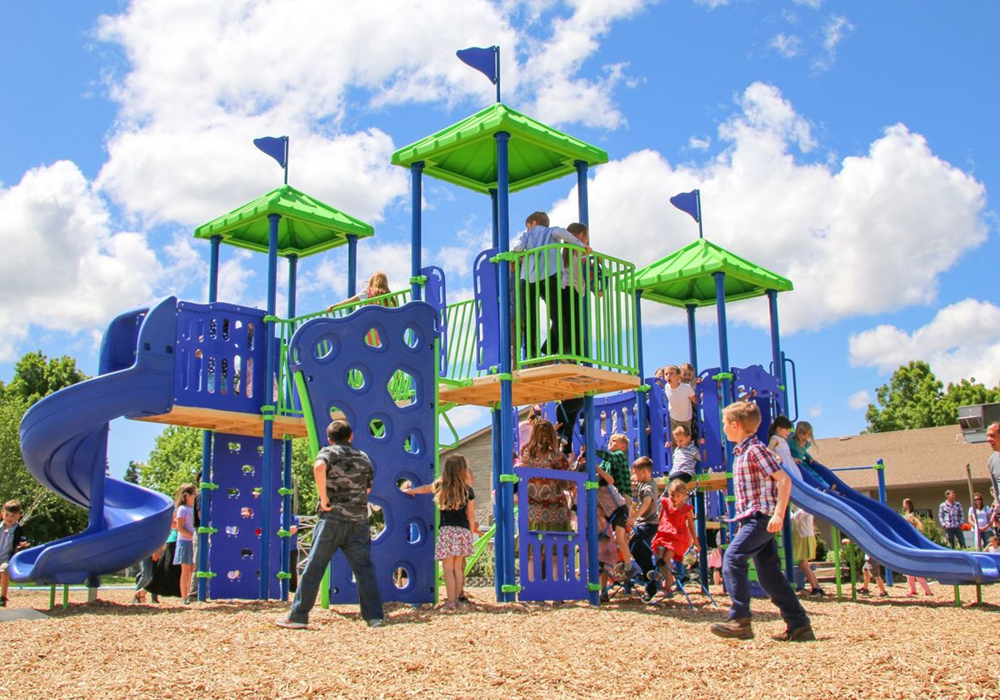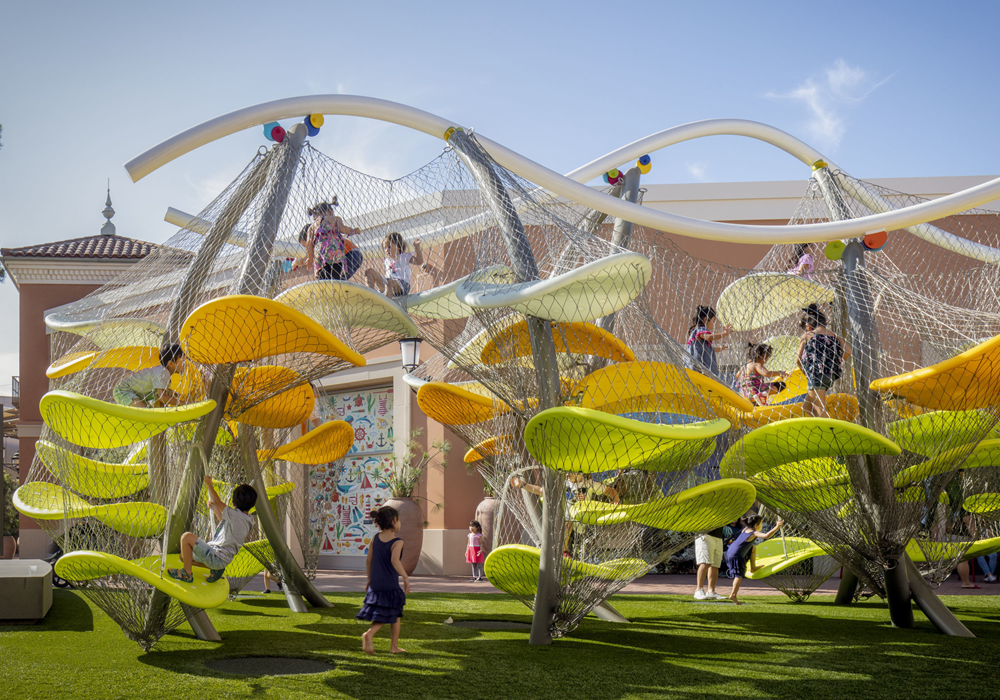A playground is a place designed to provide children with opportunities for physical activity and play. Playgrounds may be located inside or outside of buildings. Some playgrounds consist of multiple spaces, each space having different features. There are also numerous types of playgrounds, with names including adventure playground, early childhood education center, waldorf school, and urban greenway. There are benefits to having playgrounds and they include:
1. IT PROMOTES PHYSICAL ACTIVITY.
A playground allows children to expend a great deal of energy and has been said to be a place that is “where nature becomes work.” This is especially true when a structure, such as a slide or swing, becomes an object of competition. Children today grow up being bombarded with messages about the importance of being active in childhood and going to the gym after school.
2. PLAYGROUNDS CAN BE A VENUE FOR SOCIAL INTERACTIONS.
One of the main reasons for having a playground is to promote social interaction among children. This can occur in a variety of ways, including playing games and navigating an obstacle course, but the most common is through climbing the many jungle gyms installed in town centers and other public areas.

3. PLAYGROUNDS CAN HELP DEVELOP PROBLEM-SOLVING SKILLS.
Young children play on playground equipment and can learn about using a variety of different strategies. They may get the opportunity to practice balance, coordinating their movements and using their imagination to solve problems.
4. PLAYGROUNDS CAN ENCOURAGE CREATIVITY.
Children use the equipment at a playground in order to explore different ways of getting from one place to another. This helps them understand the idea that if they try hard enough, they can accomplish anything.
5. PLAYGROUNDS PROMOTE SELF-ESTEEM.
A child has a higher chance of developing self-esteem when they are able to play on an array of toys, equipment, and other things at a playground. This allows them to develop confidence since they know they can accomplish difficult tasks by putting their mind to it. When children are confident in themselves, they are more likely to be able to succeed in school and life.

